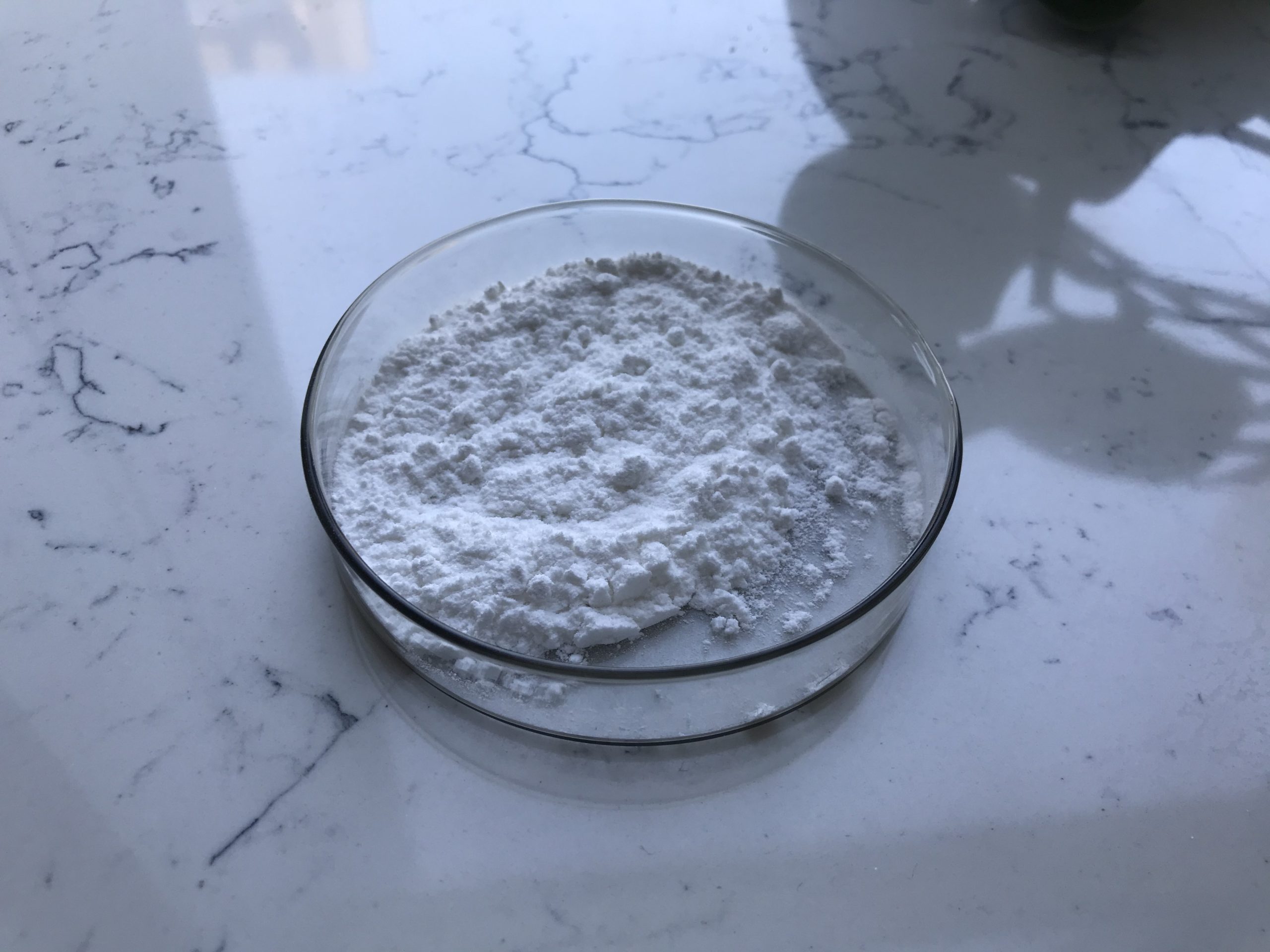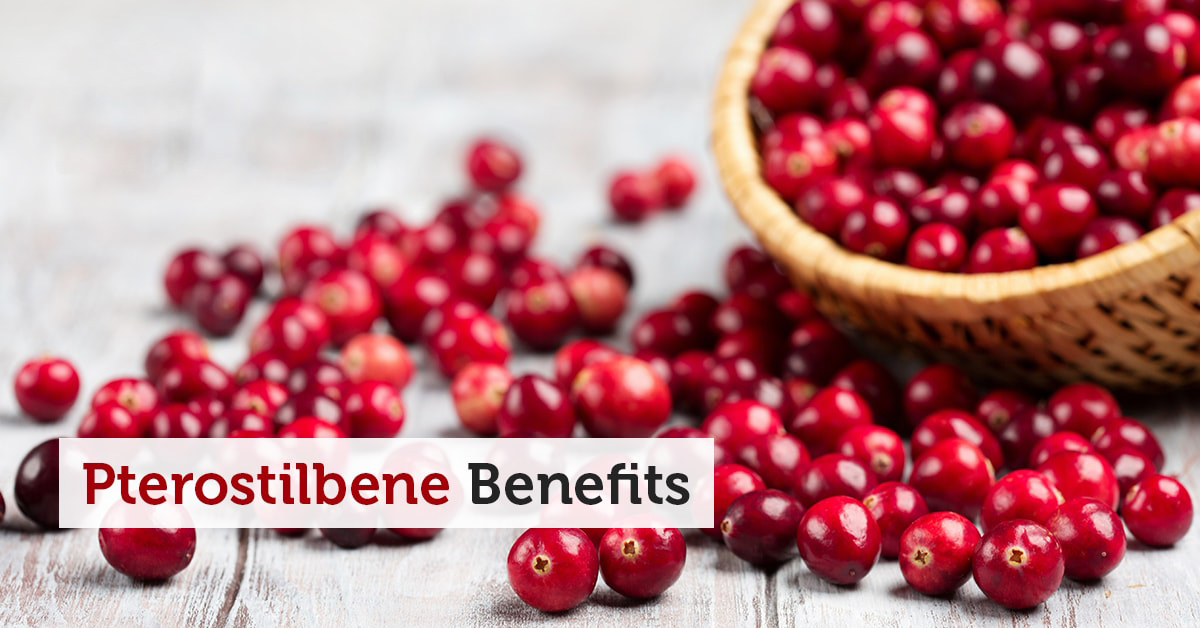Pterostilbene is a naturally occurring stilbenoid, a type of polyphenol compound closely related to resveratrol, which is found in certain plants, particularly in blueberries, grapes, and some tree barks. It shares many of resveratrol’s antioxidant and anti-inflammatory properties but is believed to have enhanced bioavailability, making it potentially more effective in the body.
Chemical Structure of Pterostilbene:
- Pterostilbene is chemically similar to resveratrol but with two key differences: it has a methoxy group (-OCH₃) instead of a hydroxyl group (-OH) on its aromatic rings, and it has a higher bioavailability due to better absorption in the digestive tract.
Sources of Pterostilbene:
- Blueberries: The most notable food source of pterostilbene, especially in higher concentrations.
- Grapes: Found in some varieties, though not as abundant as in blueberries.
- Other Sources: It is also present in small amounts in certain tree barks, such as the Indian Kino tree (Pterocarpus marsupium).

Health Benefits of Pterostilbene:
Pterostilbene has been studied for its potential health benefits, which include:
- Antioxidant Activity: Like resveratrol, pterostilbene helps neutralize free radicals, which are reactive molecules that can damage cells and contribute to aging and disease.
- Anti-Inflammatory Effects: It may reduce inflammation in the body, which is linked to various chronic diseases such as heart disease and cancer.
- Cognitive Function: There is research suggesting that pterostilbene may support brain health and protect against neurodegenerative diseases like Alzheimer’s by reducing oxidative stress and inflammation in the brain.
- Cardiovascular Health: Pterostilbene has been shown to help lower cholesterol levels, regulate blood sugar, and reduce blood pressure, all of which support heart health.
- Anti-Cancer Properties: Early studies suggest it may have potential in inhibiting cancer cell growth and promoting apoptosis (programmed cell death) in certain types of cancer cells.
- Anti-Aging: Due to its antioxidant and anti-inflammatory properties, it is often promoted as a potential anti-aging compound.
Bioavailability of Pterostilbene:
- Pterostilbene is considered to have better bioavailability compared to resveratrol. This means it is absorbed more effectively by the body, and its effects may be felt more strongly and last longer. This makes it a more attractive option for supplementation.
Potential Side Effects of Pterostilbene:
- While generally considered safe, there is limited information on long-term use. Some users may experience mild digestive discomfort or other side effects, especially when taking it in high doses.

Uses of Pterostilbene:
- Pterostilbene is available as a dietary supplement, often marketed for its potential benefits in aging, heart health, and brain function.
Summary:
Pterostilbene is a potent polyphenol with antioxidant, anti-inflammatory, and potential anti-cancer properties. It is derived from natural sources like blueberries and may offer significant health benefits, particularly due to its enhanced bioavailability compared to other similar compounds like resveratrol.
